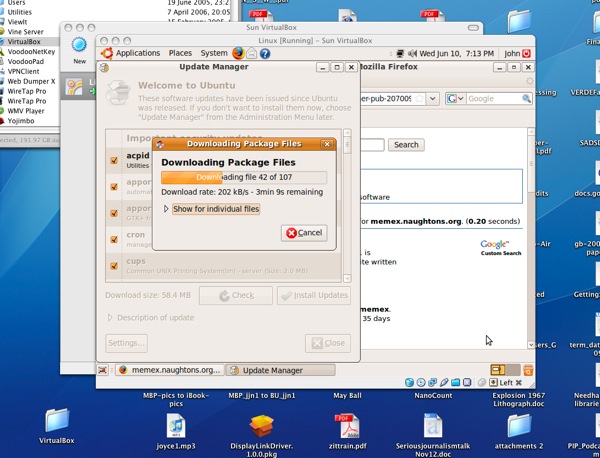I’m not a BT Broadband customer. Well, not directly. My home DSL service is supposedly provided by Pipex — which, when I last looked, had been acquired by Tiscali. But I am indirectly a BT customer because (a) they provide the phone line, and (b) they are the broadband wholesaler for Pipex/Tiscali. I’m paying for a service which theoretically offers 8mbps but in practice has never delivered anything better than 3mbps — against a theoretical maximum of 4mbps because of the distance between my home and the exchange. (I live in a village.)
I find the BBC iPlayer invaluable. But it’s often flaky. And HD is completely beyond my connection. Until I read this I was resigned to putting this down to the laws of physics.
BT Broadband cuts the speed users can watch video services like the BBC iPlayer and YouTube at peak times.
A customer who has signed on to an up to 8 megabit per second (MBPS) package can have speed cut to below 1Mbps.
A BT spokesman said the firm managed bandwidth “in order to optimise the experience for all customers”.
The BBC said it was concerned the throttling of download speeds was affecting the viewing experience for some users. Customers who opt for BT’s Option 1 broadband deal will find that the speed at which they can watch streaming video is throttled back to under 1Mbps between 1700 and midnight.
The BBC iPlayer works at three different speeds, 500Kbps, 800Kbps, and 1.5Mbps, depending on the speed of a user’s connection. There is also a high definition service which requires 3.2Mbps. Sources at the BBC said the effect of BT’s policy was to force viewers down on to the 500Kbps service, which can make the viewing experience less satisfactory.
I’ve just checked the speed of my collection at 6.15pm on a Friday evening. I’m getting only 1.78mbps. Hmmm… Time to investigate further. First stop, Pipex.


